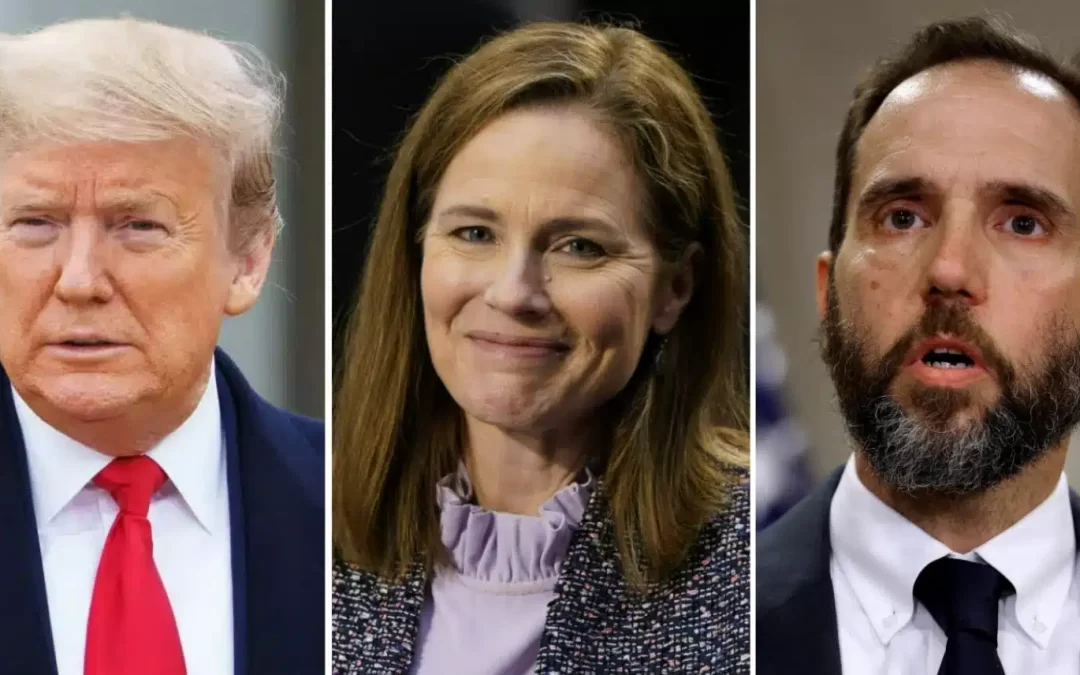Former President Donald Trump’s trial on charges that he obstructed the 2020 election is scheduled to begin on March 4, 2024. Trump’s legal team thinks the U.S. Supreme Court is about to enter a crucial presidential immunity battle.
Trump has already been denied immunity from a civil case that sought to hold him accountable for the attack on the U.S. Capitol on January 6, 2021, despite the fact that presidents are typically immune from most lawsuits, US News reported.
The fact that he hasn’t made any progress in his appeal of that ruling in more than a year serves as a model for how he might try to postpone his Washington criminal trial related to his attempts to rig the 2020 election.
Trump’s legal team is expected to argue that he is entitled to broad immunity from prosecution for actions he took in connection with his White House duties, even though they have not yet asked for it in the criminal case.
“Trump’s attorney John Lauro said that the Supreme Court hadn’t ruled on the bounds of executive immunity in a criminal case. His preview of the immunity issue failed to persuade US District Judge Tanya Chutkan to adopt the 2026 trial date that Trump wanted, but Lauro said that if the Trump team does pursue it, they’ll likely ask her to pause the criminal trial until the issue is fully resolved,” Yahoo reported.
“The strategy is a long shot because US appellate judges typically frown on hearing cases until there’s a final judgment and there’s a history of public officials prosecuted over actions they took while in office, said Brandon Fox, a former federal prosecutor who oversaw public corruption cases in Chicago and central California,” the outlet added.
The report continued:
The Supreme Court has ruled on issues related to when presidents and executive branch officials can be civilly sued or subject to criminal investigations. Still, no sitting or former president has been federally indicted before.
In 1982, the justices ruled in Nixon v. Fitzgerald that a president was entitled to “absolute immunity” against civil damages claims related to their official actions. In 1997, the court explored how to handle allegations related to private conduct, holding that then-President Bill Clinton could face a civil lawsuit over events that predated his time in office.
And in 2020, the justices held that Trump wasn’t entitled to immunity as president against a grand jury subpoena for his tax records in connection with a criminal investigation by New York state prosecutors — a probe that ultimately led to charges earlier this year accusing him of falsifying business records.
The Justice Department has a longstanding policy against prosecuting a sitting president, but President Joe Biden’s administration has obviously taken a different approach as the 2024 election nears.
Trump has entered a not-guilty plea to federal charges that he planned to unlawfully influence the outcome of the 2020 presidential election.
Historians have long drawn parallels between Nixon and Trump – mostly on the impeachment front but more recently for their attempts to invoke executive immunity.
“Could six conservative justices, three of whom were hand-picked by Trump himself, set aside the precedent established during the Nixon years and promote a strict constructionist reading of the Constitution that declares the judiciary, in fact, has no authority over Trump’s actions as president?” US News reported.
It’s not impossible, according to legal experts, especially since the former president’s attorneys appear prepared to appeal a variety of procedural rulings arising from his criminal cases that might serve as the basis for such an opinion.
“Some kind of case like this on this very issue could come to the court in the Trump cases,” says Barbara Perry, professor of presidential studies at the University of Virginia’s Miller Center, where she co-directs the Presidential Oral History Program.
“A lot of these substantive questions will come up. You can already see in the case in Washington about setting a trial date. You can see Trump’s defense team already claiming you’re not giving us enough time to prepare. And if he is to be convicted, that would be the first point in their appeal. There could be all sorts of reasons that cases involving Trump on legal procedures at the state and the federal level could end up at the Supreme Court. The biggest issue of all is separation of powers,” Perry added.









